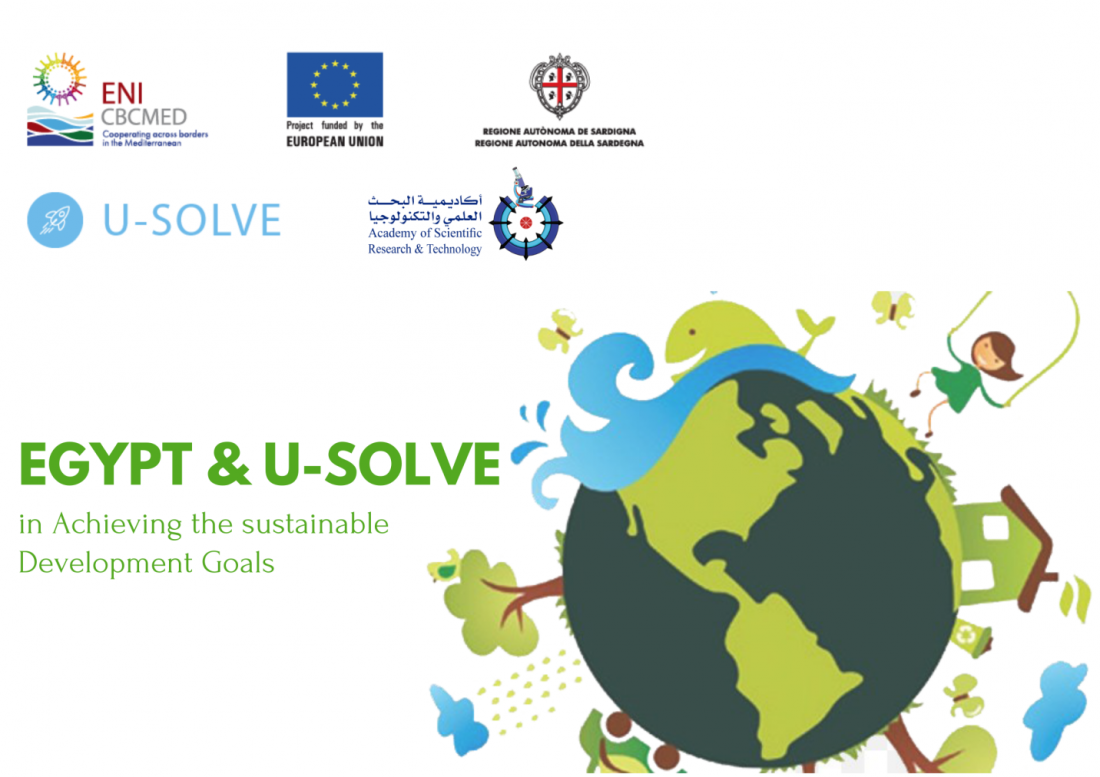Egypt and U-SOLVE contribute to achieving the Sustainable Development Goals

More than half of the world's population now lives in cities. By 2050, this figure will have risen to 6.5 billion people, accounting for roughly two-thirds of all humanity. Sustainable development cannot be achieved unless we make significant changes to the way our cities are built and managed.
National and local governments are struggling to accommodate the growing population in these areas, and efforts to make cities safe and sustainable necessitate ensuring that residents have access to safe housing and improving the slum environment, as well as investing in public transportation, creating green public spaces, and improving planning systems in order to achieve an integrated and balanced ecosystem.
The environmental transformations that occurred over the decades, which were caused by man's wrongdoings, had enormous negative effects on the environment, prompting international and local organizations to pay attention to working to confront those effects that might expose the earth to indefinite dangers, urging business organizations to work on innovation in developing its products.
Egypt is one of the first countries to establish a national committee to monitor the implementation of the Sustainable Sevelopment Goals (SDGs). In addition, it has developed a "Sustainable Development Strategy: Egypt Vision 2030." The strategy's vision is as follows: "By 2030, Egypt will have a competitive, balanced, and diversified economy based on innovation and knowledge, based on justice, social inclusion, and participation, with a balanced and diversified ecosystem that invests in the genius of the place and the human being to achieve sustainable development and improve Egyptians' quality of life."
Based on that, U-SOLVE intends to provide the Mediterranean territories with new job opportunities, in order to address the challenges of sustainable development, by developing a Mediterranean urban development model based on the development of new businesses and the transfer of technology into small and medium-sized companies.
The project will also teach young people and women in enterprise, thereby helping to change their approach. These innovative programs prepare beginners for the challenge of innovation in urban sustainability.
As a partner in the U-SOLVE project, the Academy of Scientific Research and Technology (ASRT) role is to support youth and women's employee entrepreneurship in the areas where the population lives and to participate in a co-planned intervention and economic growth model. In addition to promoting and supporting the growth of the new creative industries in these areas.
In addition to identifying, developing and testing an Innovative Urban Development Process based on the concept of the Doughnut Economy, ASRT plays an important role in the creation of new entrepreneurship and employment in the green and blue economy based on the principles of innovation and sustainable development.









